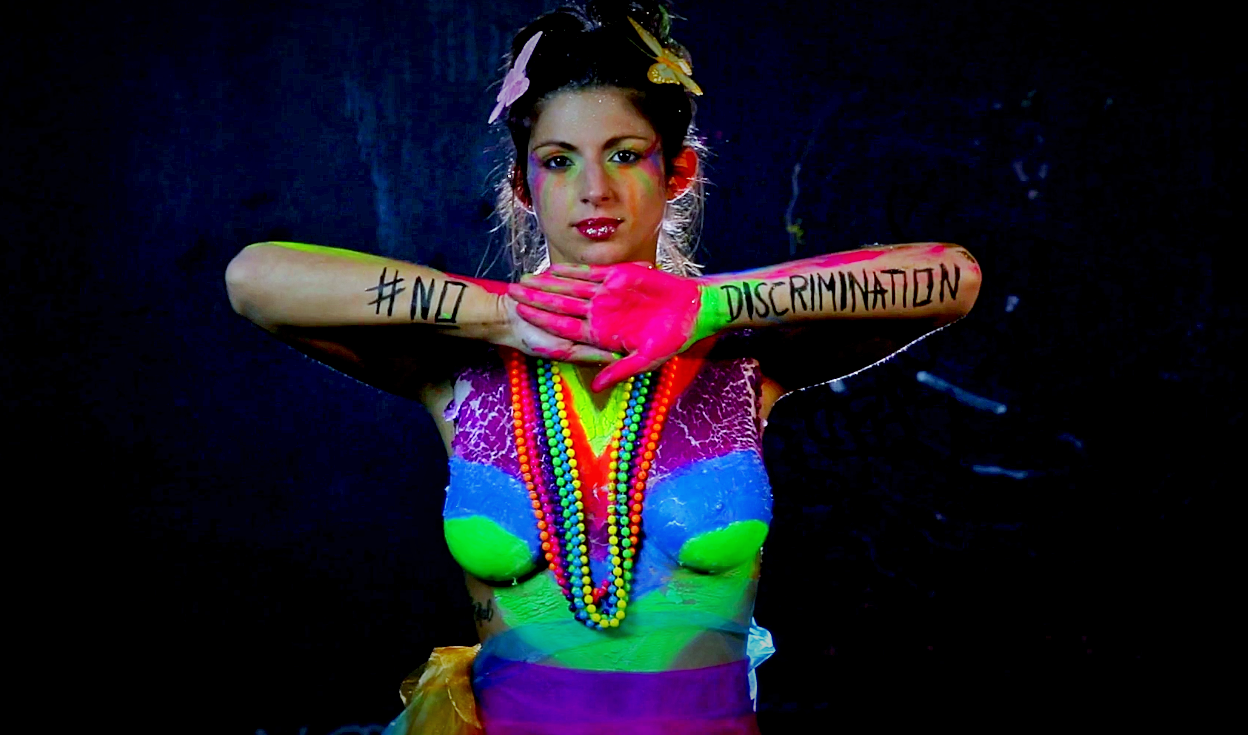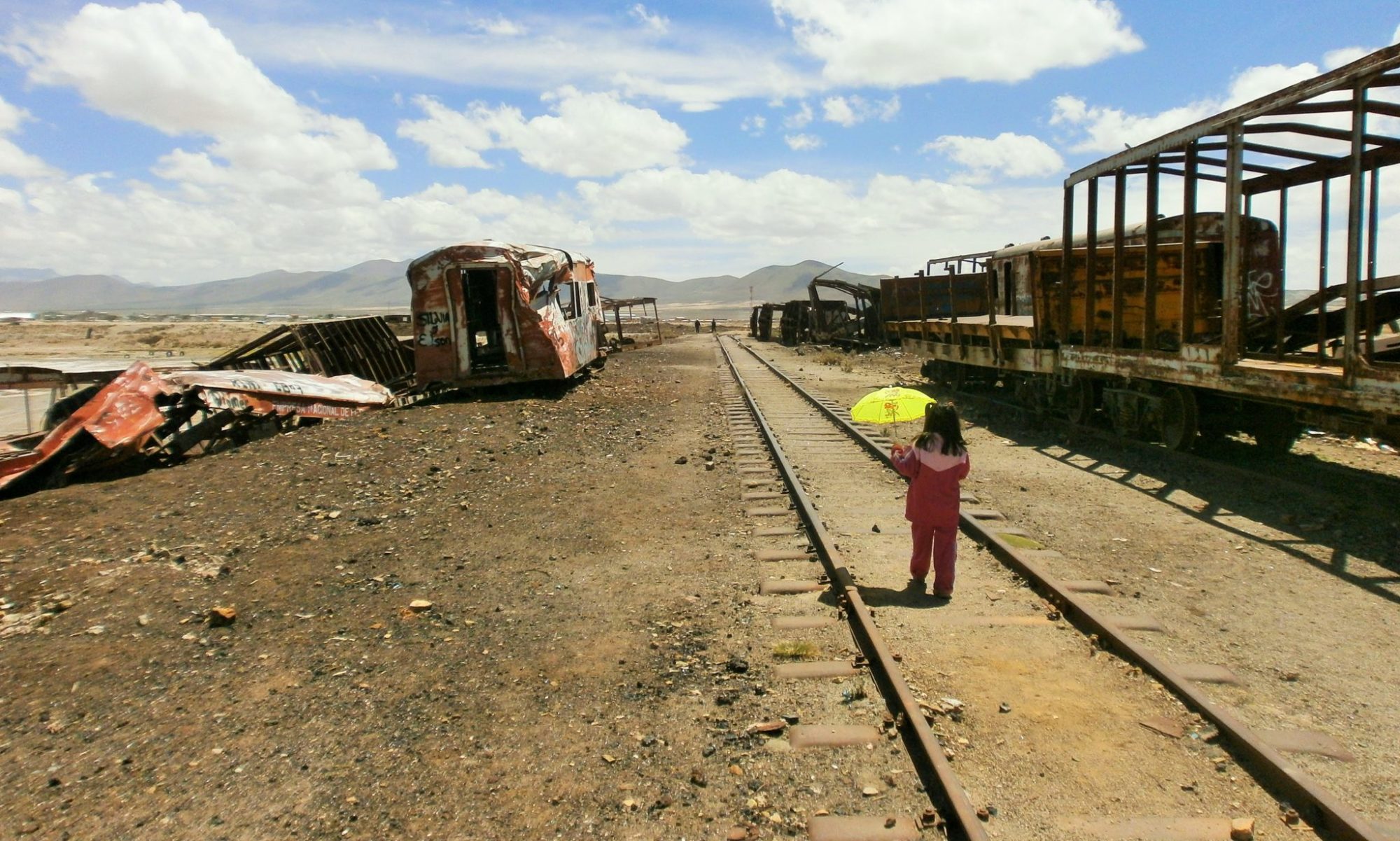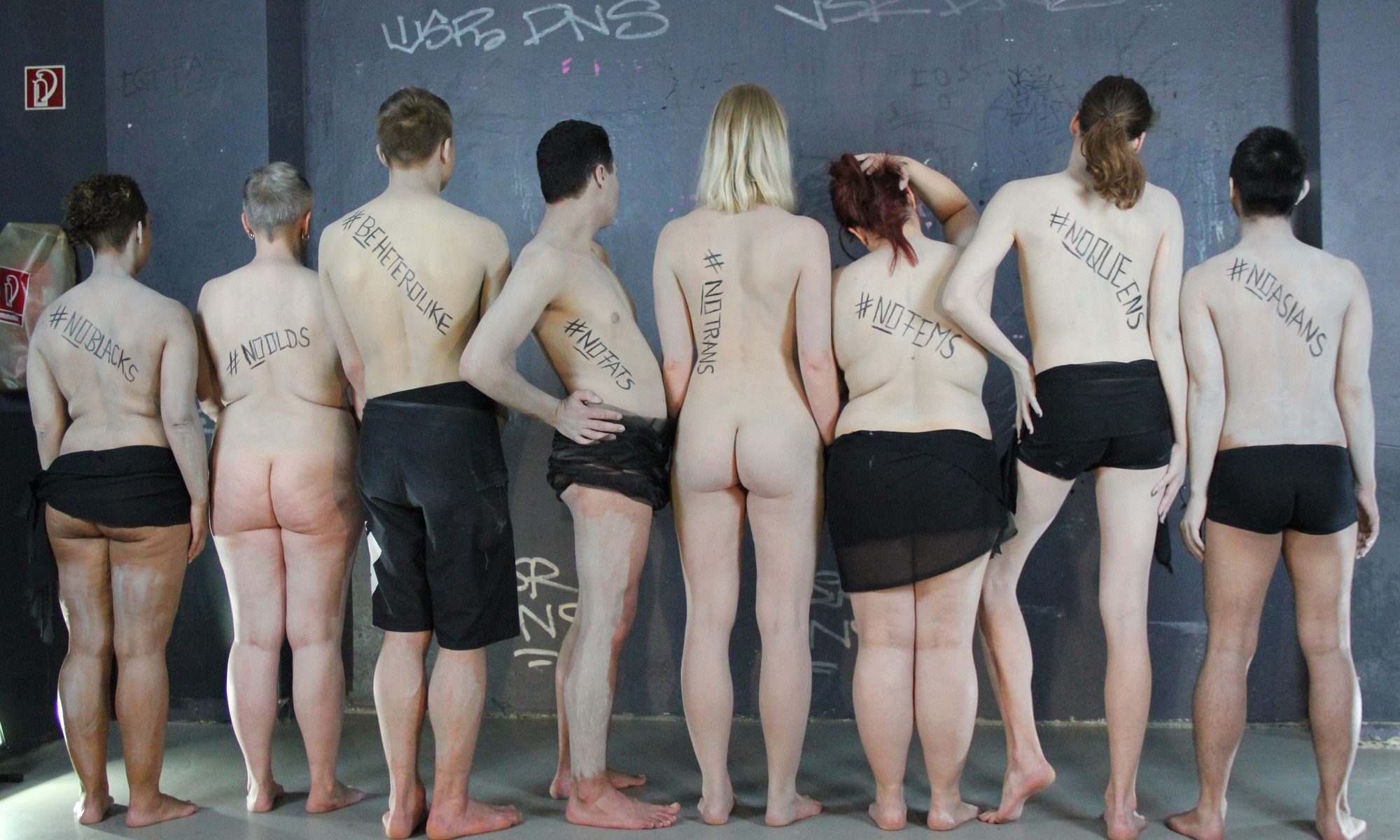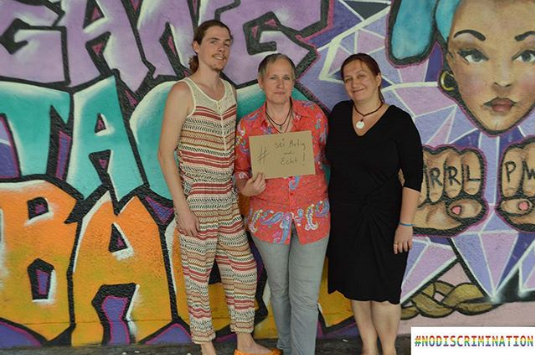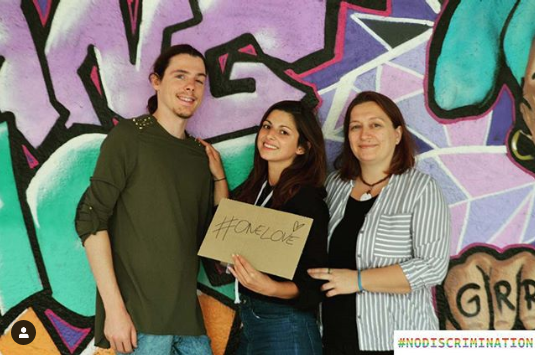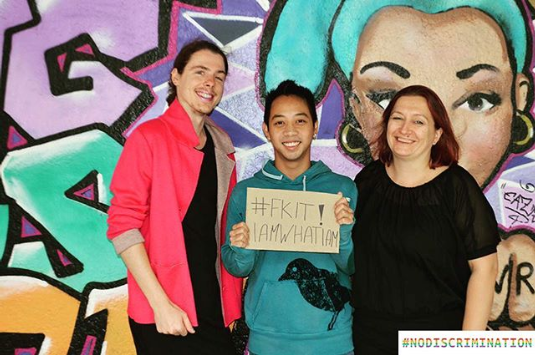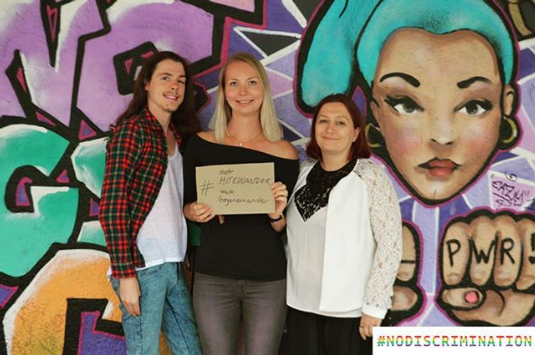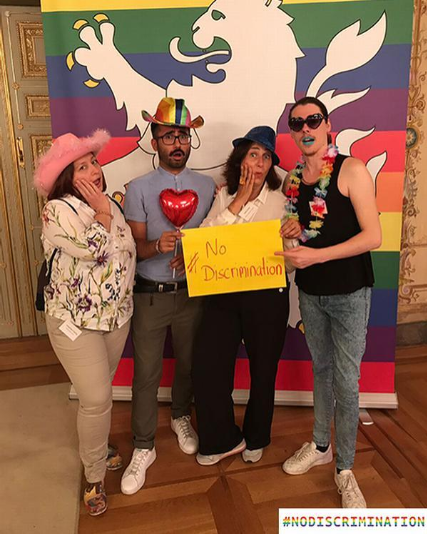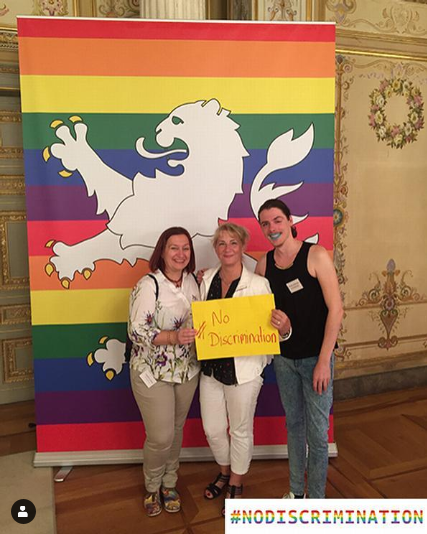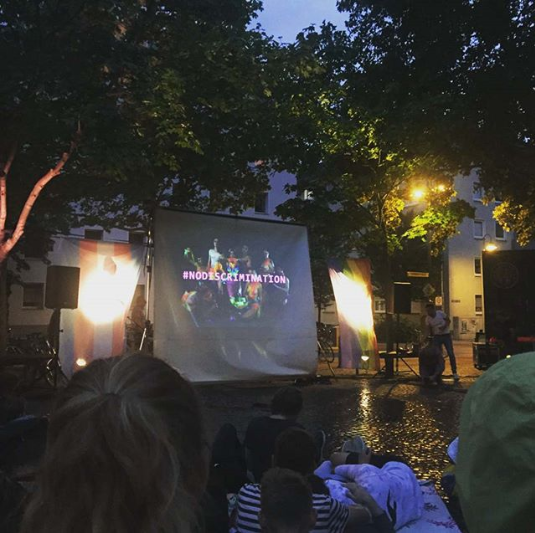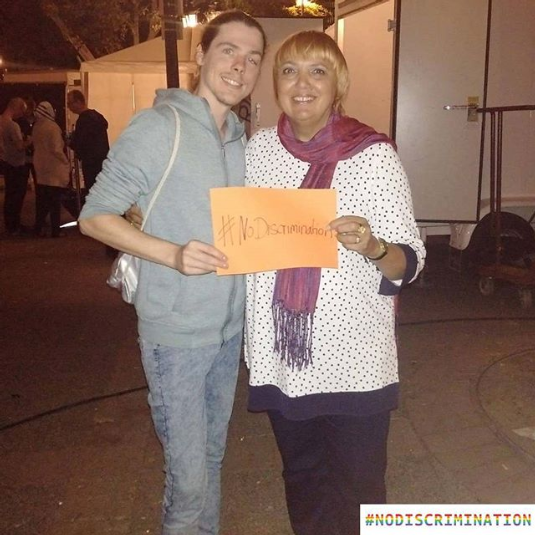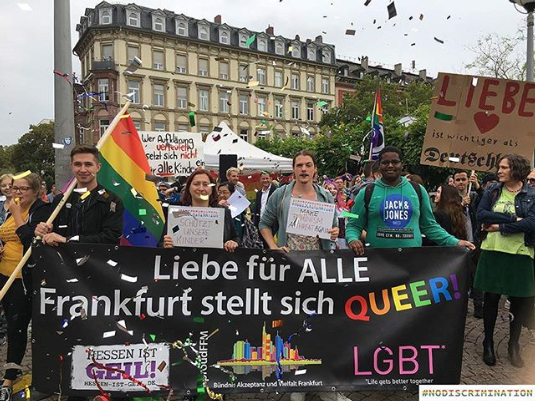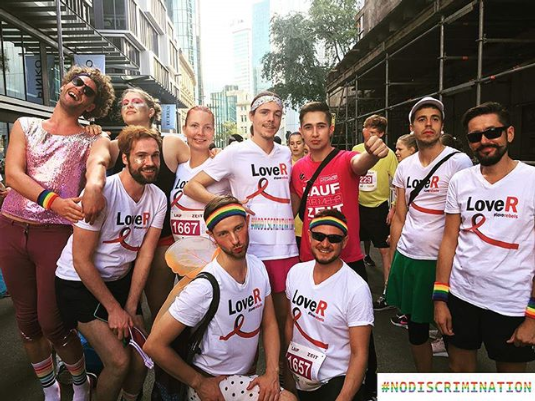There will hardly be a human being who has not experienced discrimination and exclusion in any way in his life. One is too tall, too small, too young, too old, too fat, too thin, too colorful, too dark, too light, too boring, too loud, too quiet, too conspicuous, too inconspicuous. We are just people and luckily not all the same and not trimmed to a uniform social image. It is of course tried, but man is just individual and this particular oddity lies in the right of free development. Discrimination is not a ban on being or behaving the way you want it to. But it is a condemnation of that. Words have power and influence, they create the level of communication and express opinions. An open, loving and free world for all people therefore requires a continuous reflection of their own language and its effects.
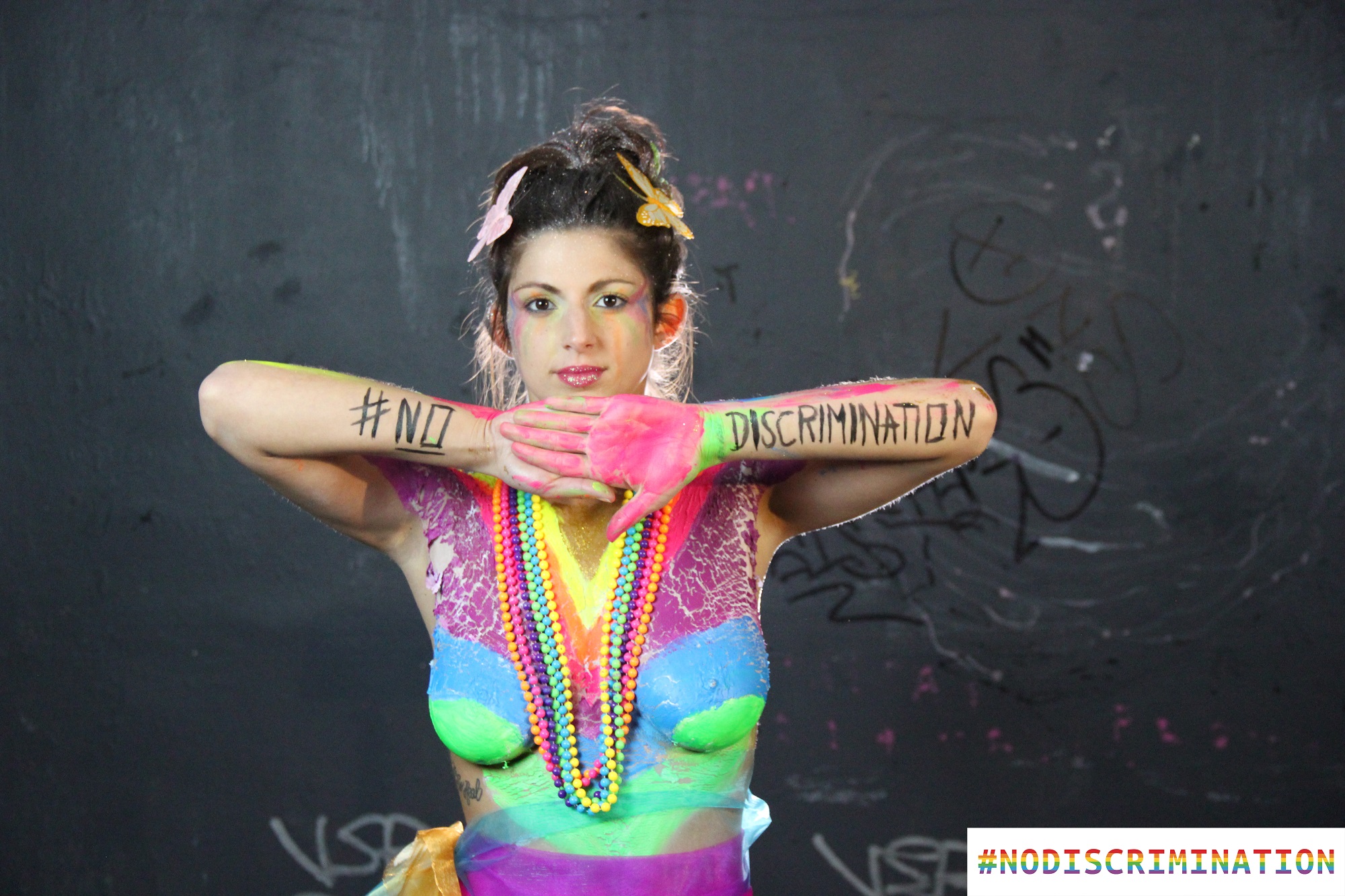
Josefine Liebing and Christian Landsmann alias Gönni or Karl Maria give with their video „Colourblind“ as part of the project #NoDiscrimination impulses for reflection and encourage a better mutual understanding. The idea arose initially in relation to online dating platforms, where the use of certain „no“ hashtags is becoming more common. Why are people increasingly starting to exclude what they do not like rather than highlighting what they like? This idiom is a completely different form of language, with very different consequences on other people. Josefine and Christian have thought, how can you be yourself in a queer community, stand for free thought, solidarity, openness and accepting the dissenters and fight, and yet exclude and discriminate in your own field? Here should be made aware and encouraged to reflect.
Together with a creative team they shot the nice video „Colourblind“ and of course the film and the topic go far beyond the queer scene. It’s basically a message to all people. „Colourblind“ has already been shown at the Christopher Street Day in Frankfurt, at the Sommerwerft and at the OpenAirKino in Darmstadt. In addition, the German political party Die Linke has taken up the video. In Germany it received a FSK (age restriction) of 0 years. Youtube was disturbed by too much nudity and limited to 18 years. Well, there are other video platforms. In the article you will also find interviews with some of the actors, interesting activists and true speakers.
We interviewed Josefine Liebing and Christian „Gönni“ compatriot, here is the audio podcast. It is in German, but in the following text you will find most parts of the conversation written down and translated into English.
What did you do exactly in your project?
JOSEFINE: We wanted to make the discrimination within the queer community visible and filmed this movie for it. The whole scene starts in such a cool atmosphere, where we first focus on different people and different forms of discrimination. NoFats, NoTrans, NoQueen, NoFems, NoAsians, NoBlacks, and so on, all you could add to that endlessly. There is discrimination at all levels. Everybody has been discriminated against at least once in his life. And that’s exactly what we wanted to address. But we also wanted to pay homage to the film, which is becoming more and more important and the respect and diversity of life.
GÖNNI: What was also the focus and how the project was created, was just the discrimination within the scene and explicitly on queer, gay or lesbian dating platforms. And that’s where the idea came from, and these hashtags or word creations come up again and again. So who do you want to meet with? NoAsians, NoBlacks, NoFats and that’s why we have this freezing, rigid phase at the beginning of the video, where you’re somehow paralyzed and rejected again and again. Then we thought about how to express it differently. Is that discrimination? Is this racism? For us it definitely is. So this project is projecting that too. And at the end, there it is. The last person showing up does not has this always „No“, there is colour to connote the whole thing positively. That ’s why we end up having this strong person with the hashtag NoDiscrimination, which then connects everyone and demonstrates that we all belong together and are all human and that everyone in his or her own way can be diverse and different. But we are each one in our way connected to some core, therefore we are all different people but as well all the same.
It would be time for a hashtag with „Yes“?
JOSEFINE: Definitely, exactly. We want that too with the colorful colors. So the movie is divided into three parts. From the second part, where the colorful person comes in, then we start with the colorful colors. This affirmative to life, that we carry everything within us, to express that artistically.
In the movie this „NoDiscrimination“ is in the foreground, but the deeper resulting message is actually a hashtag „Yes“. So „yes“ to humans.
GÖNNI: That’s also the debate that’s going on right now. There are also surveys. Is not it more meaningful to say, ok, to connote positive, what is the sexual interest? Instead of saying, I do not care about that, that and that, just to say, what I’m interested in. That’s what dating sites are about. What I stand for, what attracts me instead of writing, which does not attract me. This is a very different form of language that does not exclude but also includes and in that sense excludes, but in a different way. And not by degrading the others to certain characteristics and also discriminating against them.
JOSEFINE: You also have to remember, you can do a lot with language. There you can create a world. So for yourself and also for the other person and for the opposite of the other person. I believe that situations can arise in which we all do not feel very well. So it goes on and it is also important to offer empowering solutions. Because otherwise one is always in this victim role. So you should not hide in it. Of course, it’s important that we talk about it, definitely. Because only in conversation begins a real dialogue on a topic. But it’s just as important to say, „Yes, hello, here I am and I have the same right to live as I am.
GÖNNI: Especially what was especially important to us was to show how powerful language really is and how language also creates reality. Especially in the last months we can see, how this linguistic style moves more and more and what is allowed again and is allowed to say. That was precisely what was important to us to show that people are perhaps reflecting on dating platforms, what they actually do, how powerful language can be and what language does. And that was especially important to us, also to show that people who are affected by it, that due to language, language also leads to exclusion and that you should always reflect on what language expresses and what to say. We see recently that it is shifting more and more and that it is becoming socially acceptable again. And that’s where it’s important to make a mark. When it comes to language – and that is very strong on dating platforms – who speaks at all? And who has the right to speak? And who is only addressed and who is not. So that’s a big topic where you can do a lot and that’s especially important. When you look at the hashtags that really go from NoBlacks to NoAsians to NoTrans and NoQueers, it’s easy to see that even on data platforms, as it is socially, that’s the power, the right to speak, white men to have. In the sense of white gay men, but even on dating platforms with the hashtag, which we also have in there, as a counterpart almost hetero-like view. So do not bi or you can not show that you are gay. So after the motto. These are people who have the authority to interpret even within dating platforms, as well as in the society that we have here now, and decide who speaks how about whom.
Are there any dating sites you can recommend?
GÖNNI: Well, it’s relatively difficult, as most of them – that’s very obvious now and I’m talking explicitly about gay platforms – but very many are actually just there for the sake of finding a fast sexual partner. For many this exclusion criterion is simply important, because it is also currently, because I want as much information as possible. So size, identity, nationality and so on and so on, so that I save myself time to find the person with whom I want to have sex now to my taste. After a long experience, which I have also made myself, is that some of these dating sites are exclusively for this purpose. That is, to really get to know people, you do not really need to go there. In fact my alternative would really be to say, „Go out, get to know people as they are, talk to them.“ You do not get to know people differently.
JOSEFINE: You do not even know who is behind it at the end. So with the women it is knitted again something else I must say. Since I would not sign that now, that every woman is looking for only one woman for quick sex. But women treat discrimination differently. What we have seen so far, so on profiles you can indeed read less, but much more in forum posts. Since then one reads out a lot more, where then already very harsh comments come. Although I have to say, lately I have noticed more that more women solidarize with each other. And I think that is also a very exciting development and one should not conceal that. That’s what we all need to get out of: we need to show solidarity.

One difficulty is the fear of people approach each other and a rejection.
GÖNNI: I would not call it just fear. A great attraction on these online platforms or an impulse is the anonymity on the one hand. On the other hand, the acting out of I call it sometimes certain fetishes or other things that are just socially in the gay world or perhaps even in the lesbian world socially not considered, are frowned upon. […] I think in the last couple of years alone somehow closed four or five gay bars. This is more and more back and is then actually lived online. But I also believe that, in fact, quite a few are definitely scared. But I think it’s the fear, because it’s socially still not recognized even nowadays not in 2018 somehow walking around the streets with his friend or someone else holding hands. On the other hand, it is just as frowned upon to say, I do not want to find the love of my life tonight, I just want to fuck. And I think that’s quite different in the hetero world than in the gay world. That’s relative, I call that normal now, I’m just looking for someone to pursue my sexual desire. But if I said that to my mother personally now, she would not scream „huhu“ and say, go ahead. It plays a relatively large role and it plays a lot the role of how the society deals with it or you think in person. So whatever the factor is, I think, what are the others thinking about what I do, what I do, what I say, how I behave. I think that for many people the problem is: Ok, that’s not social, I have to do it in some niche or online.
You want to give impulses through your film, so that people can think more about each other in order to understand each other better.
JOSEFINE: We also see the project as a reflection society. We do not want to limit that to the queer scene now. Of course, the focus is only in the movie on the queer scene, from this we have developed the idea. But we just see that there is discrimination everywhere and that’s why we’ve done it on different levels. On different – I call it now „groups of people“, even if I myself do not like this term, because it is again such a drawer – but we have designed it so that everyone really feel in some form of it also addressed can. It’s about identifying with something and having a feeling that you’ve had in your life before. And I believe that one can also develop an understanding of other people. If you put yourself in this feeling. That’s why we worked with these black and white pictures at the beginning. Very cold. And then with color, to awaken these emotions and give that feeling for the moment.
GÖNNI: Just now in this time in which we are currently and do not know who makes the next state elections. And we all see how the development is right across Europe. And not only in Europe. It is also extremely important, then when fighting for recognition and a non-discriminatory space from the outside, it was important for us to focus and say: Hey look, we are discriminating ourselves. Every day we exclude people and make these processes ourselves, which we somehow say about others, we think they are shit. It was important for us to start here and show: Hey, look, reflect here. We can only fight together against what is happening, if we are behind it ourselves and do not exclude ourselves and discriminate on a daily basis.
Then she was virtually discriminated against by online providers. So in Germany the video had received a FSK 0, so from 0 years. But in the US, the limit on Youtube was set to 18.
JOSEFINE: Well, so we got a message from this channel that we now have an age restriction of 18 with the video because you could see nudity or sexual acts. The emphasis was on „female bare upper body“. Male would have been less the problem.
GÖNNI: Which brings us to another topic, which is also totally fascinating. So if you think about it now, no matter when I turn on the TV, I see in every other movie a naked woman who is upstairs without. So also on German television. And then they actually have in the movie really sexual acts and contacts, what we have not in our film and what has definitely been processed in an artistic way. In retrospect, this is actually relatively ridiculous, when you see that then our video is censored.
JOSEFINE: It’s just too bad, because that’s just the way virtual communication with young people is lost. That’s the next generation. And we adults always talk and talk about a lot, but somehow we always forget the next generation. What happens to those? I think that’s a shame and dangerous.
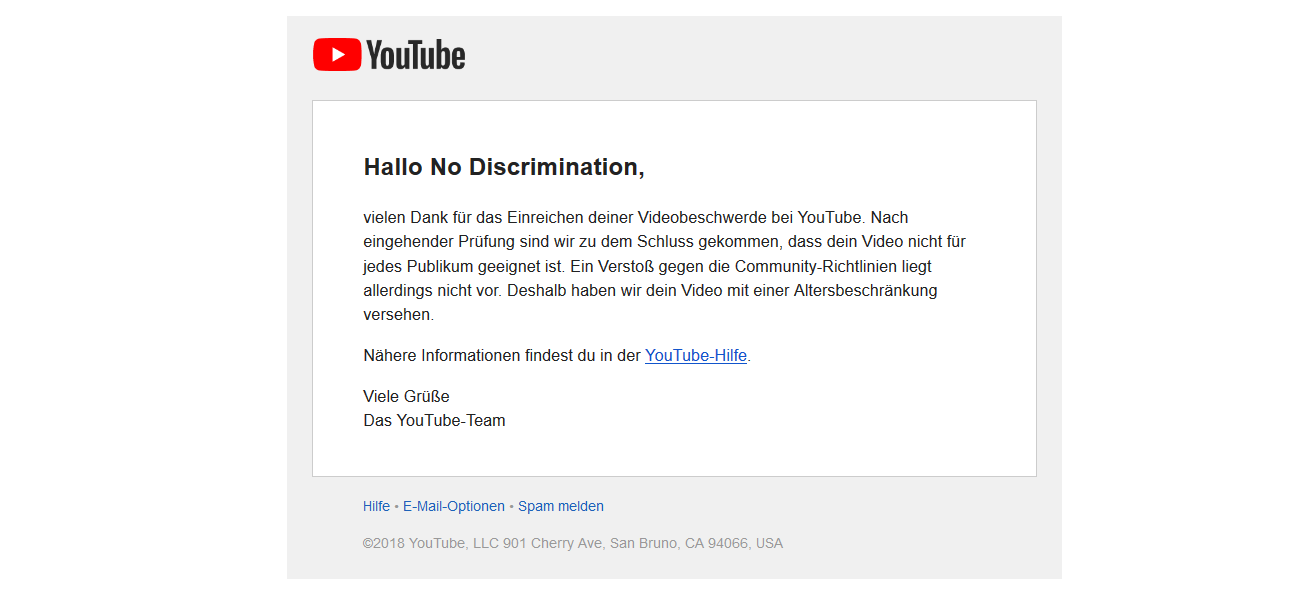
The film is now ready, broadcast and aired, as well as two video interviews with actors telling about their own experiences of discrimination and their views. What’s next?
JOSEFINE: So next, we are in preparation for an exhibition that we would like to make the video. During the shooting we also had a photographer on the set, who took beautiful pictures. We would then like to make an installation to our video and additionally show striking pictures and also how we worked on site with little resources. To motivate people to see for themselves: Ok, so even with little resources, I can do a lot myself, I can change a lot myself. So here, too, the community project. If we do something together, then you can do much more. That’s a very important point for me. So, as we said, we are planning the exhibition for autumn this year and are also looking for sponsors. Colourblind and #NoDiscrimination is an initiative of Wanderfrieden and the Autonomen Queerfeministischen Schwulenreferat GU (=Gay Queer Feminist Unit).
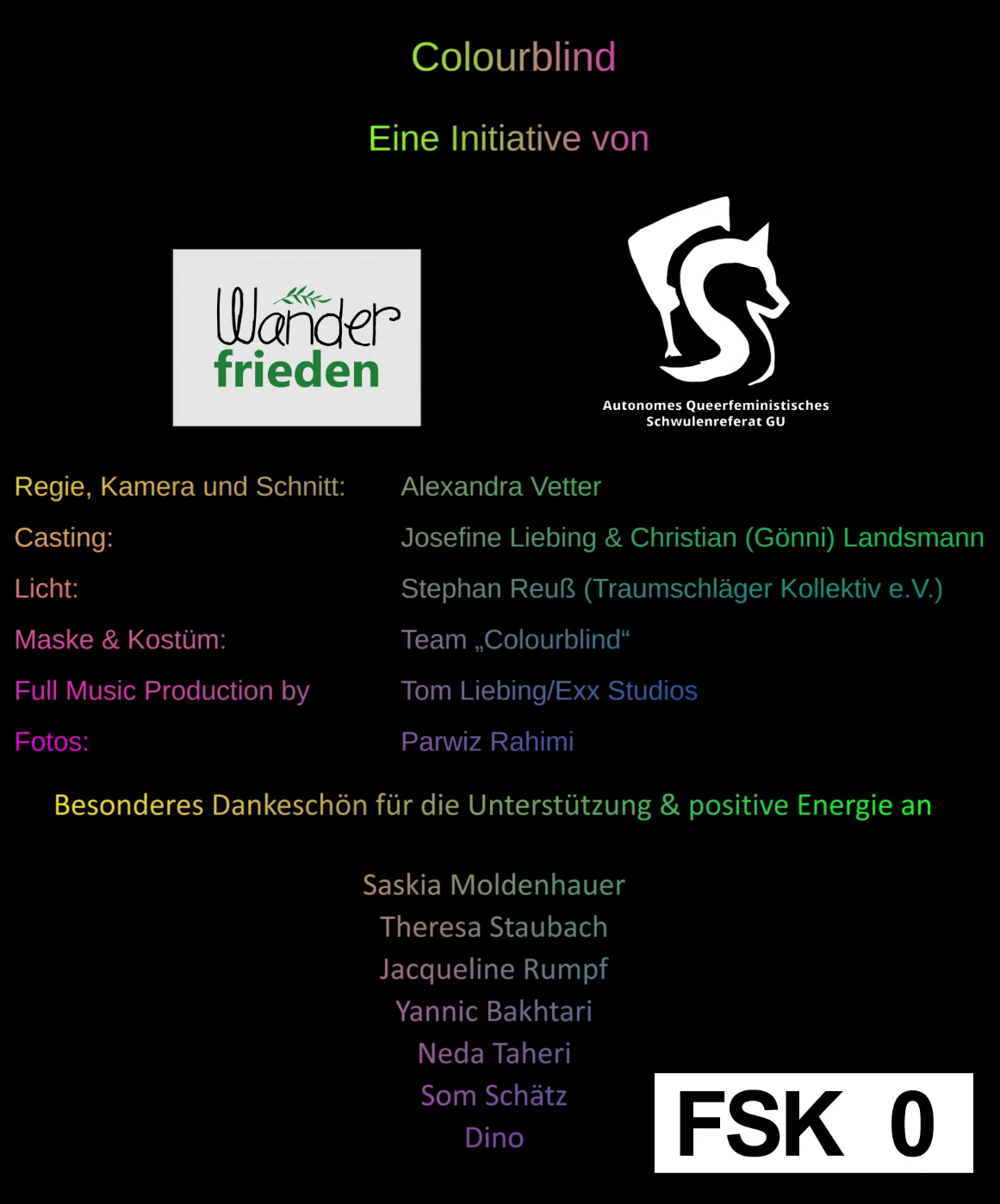
INFOTHEK
![]() E-Mail: info.nodiscrimination@gmail.com
E-Mail: info.nodiscrimination@gmail.com
![]() Facebook: https://www.facebook.com/NoDiscrimination2018
Facebook: https://www.facebook.com/NoDiscrimination2018
![]() Twitter: https://twitter.com/nodiscr_2018
Twitter: https://twitter.com/nodiscr_2018
![]() Instagram: https://www.instagram.com/nodiscrimination2018
Instagram: https://www.instagram.com/nodiscrimination2018
![]() Youtube:: https://www.youtube.com/channel/UC8Bk9-c7I4aCd5v_6FX2pzw
Youtube:: https://www.youtube.com/channel/UC8Bk9-c7I4aCd5v_6FX2pzw
![]() Vimeo: https://vimeo.com/user88498823
Vimeo: https://vimeo.com/user88498823

VIDEOS
Colourblind
![]() Youtube: https://www.youtube.com/watch?v=e59OpGoxpQQ
Youtube: https://www.youtube.com/watch?v=e59OpGoxpQQ
![]() Vimeo: https://vimeo.com/285339801
Vimeo: https://vimeo.com/285339801
Interview with Jacqueline
![]() Youtube: https://youtu.be/e0UMfz8caXc
Youtube: https://youtu.be/e0UMfz8caXc
![]() Vimeo: https://vimeo.com/285728146
Vimeo: https://vimeo.com/285728146
Interview with Neda
![]() Youtube: https://www.youtube.com/watch?v=gkgIXDGWXMI
Youtube: https://www.youtube.com/watch?v=gkgIXDGWXMI
![]() Vimeo: https://vimeo.com/287237491
Vimeo: https://vimeo.com/287237491
The initiative focuses on the human being and a self-determined life. The platform should give the opportunity to talk about their own experiences of discrimination and make them visible.
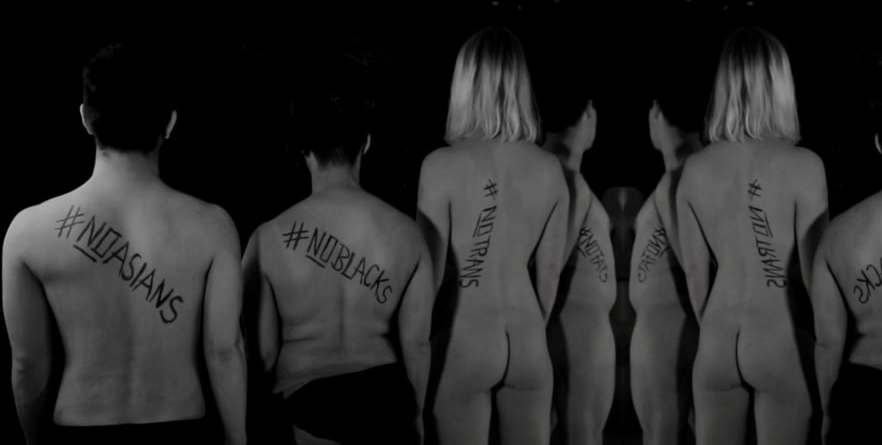
PHOTO CREDITS
![]() Photographer: Parwiz Rahimi
Photographer: Parwiz Rahimi
![]() LinkedIn: https://de.linkedin.com/in/parwiz-rahimi-110701104/de
LinkedIn: https://de.linkedin.com/in/parwiz-rahimi-110701104/de
![]() Facebook: https://www.facebook.com/parwiz.ramiz.3
Facebook: https://www.facebook.com/parwiz.ramiz.3
![]() Youtube: https://www.youtube.com/user/parwizphotography
Youtube: https://www.youtube.com/user/parwizphotography
Copyright of Film and Photos: Christian Landmann & Josefine Liebing
